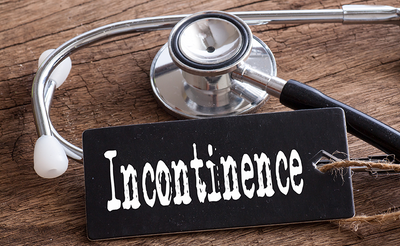Incontinence, while challenging, is a condition that can be effectively managed with the right understanding and approach. It's important to remember that experiencing incontinence is neither a cause for worry nor a reason for embarrassment.
For women, experiencing a weak bladder after sex can be an indication of urinary incontinence, a condition that's surprisingly common. In fact, it tends to affect women nearly twice as much as men. This prevalence is particularly notable post-childbirth, with 28-47% of middle-aged women experiencing symptoms.
Additionally, the onset of menopause often contributes to the development of incontinence. Understanding these aspects is key to fostering a supportive and empathetic approach towards managing this condition.
How Does Peeing During Sex Impact Sexual Health?
Urinary incontinence (UI) impacts many aspects of life, sexual health being one of them. The constant need to pee during sex may occur for some women. This would disrupt the intimacy between the partners and cause unnecessary tension and embarrassment.
Severe UI in women can lead to vaginal dryness, decreased sexual desire and sexual satisfaction. Most women may not feel like opening up to their partners about their condition, and the issue would be left unaddressed. This can cause anxiety and depression, it is better to consult a doctor about this and get yourself diagnosed and treated.
Reasons for Frequent Urination After Sex
Frequent urination after sex is a sign to check with your doctor.
Some of the reasons for frequent urination after sexually active females engage in intercourse are:
- Excess pressure on the bladder during sexual activity
- UTI or urinary tract infections
- Diabetes
- Overactive Bladder Syndrome
- Obesity
- Low Oestrogen Levels
- Weak Pelvic Floor Muscles
Communicating With Your Partner:
When facing incontinence, it is better to be open to your partner.
- Share with your partner that you feel the need to urinate during sex or feel like peeing after sex.
- Research ways to avoid putting pressure on your bladder and ask your partner to follow them during sexual activity.
- If you feel the need to urinate, ask your partner to stop the sexual activity immediately.
Treatment and Management
Treatment for the frequent need to pee during sex can be as follows:
-
Pelvic Exercises:
Urinary incontinence occurs due to the weakening of the muscles in the pelvic floor region. To help with this, it's a good idea to strengthen these muscles through specific exercises. One effective and well-known method is Kegel exercises. Practising Kegel exercises can be beneficial in managing urinary concerns during intimate moments, such as your need to pee during sex.
-
Medication:
Oestrogen replacement is done either in the form of a cream or a vaginal ring. Drugs like Botox and pseudoephedrine can be prescribed by your medical professional for UI. These medications mostly help with relaxing the bladder to stop frequent urination after sex.
-
Surgery:
If you're considering surgical options to address your frequent need to pee during sex, an operation can be done to treat your UI. The surgery aims to reposition the bladder neck or strengthen the urinary tract area, alleviating the condition and associated symptoms. The sling procedure is the most common surgery for UI.
General anaesthesia will be administered for the surgery and recovery time usually takes about 2 to 3 weeks for the patient. There is a chance of complications with UI surgery. Hence, it is advisable to consult your doctor about all possibilities and make an informed decision.
Management of Urinary Incontinence
A few steps can be followed in your daily life to better manage the incontinence issue:
- Consuming less caffeine, alcohol and sweetened drinks and quitting smoking help reduce the symptoms.
- Eating healthy food with more fibre content is advised.
- Doing Kegel exercises regularly can promote a healthy bladder and strengthen your pelvic floor muscles.
- If obese, weight reduction will also help in managing the UI.
- Devices for electrical stimulation are available for incontinence, which can help tighten the pelvic muscles and avoid the feeling of peeing after sex.
Conclusion:
Urinary incontinence is nothing to be ashamed of, and can be easily managed with the above-mentioned methods and treatments. If you have only mild urinary incontinence, you can use Friends Adult Insert Pads to manage your condition. If your situation requires extra protection against sudden loss of bladder control, choose Friends UltraThinz Slim Fit Dry Pants for Women, which are discreet and thin enough to use under your normal clothes without any bulges.
FAQs:
-
Can incontinence be managed during sexual activity?
Yes, it can be controlled with regular Kegel exercises to strengthen the pelvic floor muscles. Also, emptying your bladder before sexual activity can help reduce the urge to pee during sex.
-
Can pelvic floor exercises help with incontinence during sex?
Yes, regularly following pelvic floor exercises helps in controlling incontinence during sex.
-
Should I consult a sex therapist or counsellor?
Consulting a medical professional is a better solution for UI - the healthcare professional may be your gynaecologist, pelvic floor physical therapist, or urogynecologist.
-
How can my partner support me with my incontinence?
An understanding partner can help ease you into comfort and help you manage your condition. Your partner may try different approaches during intimacy to avoid putting pressure on your bladder.
-
Are there any treatments that can improve incontinence and sexual health?
Kegel exercises, medication, and, in some cases, surgery help improve the condition of incontinence. Strengthening the pelvic floor muscles can result in better management of the urge to pee during sex.





